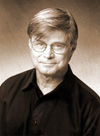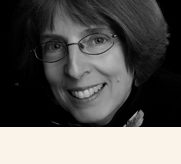The blank page glares at me. Stark. Judging. Waiting for brilliance, not blather. The pressure is almost unbearable. First there is guilt—who am I to spend my mornings writing when there are children starving in China? Africa? Virginia? What a luxury it is to write. How indulgent. Then there is fear. What if the next story I write isn’t any good? But what if it is good? My inner critic won’t shut up. How arrogant to think that I might bring forth something out of nothing, offer form to the chaos, give meaning to the void. Ha! But I want to produce literature. The idea ushers in doubt and I languish beneath heady thoughts rather than digging deep into moments—scenes—details where a sense as simple as smell can trigger dangerous emotions.

In December my friend, poet Ron Smith, in his Commencement speech to English Department grads at Virginia Commonwealth University, said that “all good literature is about what it means to be a human being—one who perceives through the senses, one who reasons, one who feels—and who intuits that these things are not really separable.”
Before VCFA I wouldn’t have fully understood what Ron meant. My writing earned rejection letters with lines such as, “I have not been able to establish an emotional connection with your main character.” Now post-VCFA, not only do I understand, but as the blank page beckons, I brace myself, knowing where my writing must go. Before me on the eight-and-a-half-by-eleven void—the whiteness so pure it could be snow or starlight—I glimpse a shadow. No, wait, it is sweat. See? There—warping the surface…

Very well said! Is there truly no grey space between the black and white of “I can do everything” and “I can do nothing?” I struggle with this hourly. By the way, a beautiful line: “I brace myself, knowing where my writing must go.”
I hear you, Cori. While I was writing this, I recalled hearing Katherine Paterson address an SCBWI group. She told us to “dare to be mediocre.” I think she’s right. I have to let go of my own too-high expectations in order to write anything at all.
I so identify with the guilt, Anne. There is always something else that needs doing, there are choices to make, and it’s sometimes hard to decide when to choose writing first. One of the biggest delights in writing is when I successfully capture that “essence of the human being” and a character feels real. But unless I say “no” to writing sometimes, and live outside my desk, I don’t think I could put life on the page believably. I need to find the balance, and it’s a constant tipping back and forth.
So true, Meredith. The balance is key. The day after I wrote this post, I actually felt playful while writing, and perhaps “On Play” will be my next blog post. When I was growing up, if anyone had told me what was actually involved in the process of writing fiction, I don’t think I would have believed them.
Well, *I* felt an emotional connection with what you wrote here, Anne. You wrote what I think we all feel so much of the time as we’re waiting for lightening to strike, and wondering if there isn’t some worthier contribution we can make. We are what we are, and we do what we do—each to his or her strength—and posts like yours help to remind us that no one is judging us but our own inner critics. And it’s okay to tell ’em to shut up!
Thanks, Marci. Working through Julia Cameron’s book, THE ARTIST’S WAY, helped me learn to shut down my inner critic. But that was a decade ago, and now I probably need a refresher course!